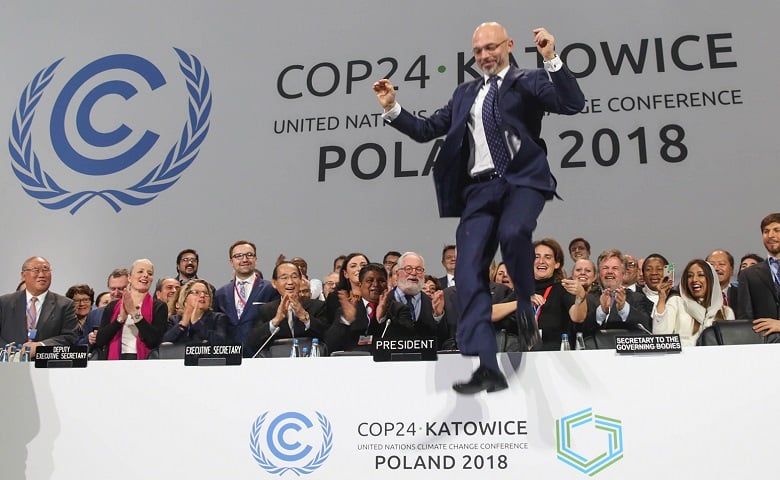An update to our December 11th blog “COP 24: Another windy road to reaching the consensus on climate action”
The COP 24 is officially over and although the developments during the first week of the Summit were not so promising, there are still results that can be characterized as valuable. So, what are the outcomes after two weeks tough and strenuous talks? Do they set the clear guidelines for the countries to move forward in their fight against global climate change?
Well, it could be said that the desirable products of the COP 24 have been partially delivered. During the first week of the conference, the negotiations hit a stumbling block over the way the IPCC 1.5 report would be acknowledged by the participants. The US, Saudi Arabia, Russia and Kuwait refused to ‘welcome’ the report, but the final COP decision text welcomed its ‘timely completion’ and invited countries to use the report in the following discussions at the UNFCC.
Still, the Paris rulebook, that is the operational framework of the Paris Agreement, was adopted by the end of tough negotiation process even though certain topics were left to be discussed at the next COP meeting. Namely, the rulebook sets the rules for almost all issues apart from two issues that will be discussed at the next COP 25 in Chile. These are the decisions on the mechanics of an emission trading system and the issue of raising ambitions that will discussed at next COP and at a UN Climate Summit next year. Still, the negotiators have reached a consensus on many topics and the rulebook sets the rules for all countries, taking into consideration incapacity and vulnerability of the developing countries. One of the main points agreed on is Intended National Determined Contributions (INDC) pledges to be recorded in a public registry, using the latest accounting guidance from the IPCC 2006 that will be updated next year.
Also, the rules governing climate finance reporting have been rapidly adopted. The rules regarding transparency have also been adopted and they determine the time of reporting and indicators that countries should use to report on new climate efforts.
In spite of the fact that many environmentalists and NGOs were left disappointed and dissatisfied after the end of the conference, there is hope that next year’s COP will bring unanimous decisions on the important issues that were left behind. The overall tone of ‘non-urgency’ should not be discouraging, since the countries have committed to a concrete way to bring the Paris agreement to life and to redirect the world to a sustainable, green and safe future.
Sustainability Knowledge Group is a global advisory firm dedicated to creating value, through strategic CSR and sustainability solutions. Sustainability Knowledge Group supports companies to develop, manage and measure effective tailor-made Sustainability and CSR programs which address social and environmental challenges while promoting corporate strategy. Sustainability Knowledge Group offers training, coaching and advisory solutions grounded in international theory and successful application, and focuses on proven methodologies that bring tangible results, measurable impact and create better businesses.
If you would like to know more about how to lead in sustainability, utilize proven tools and gain new skills, contact Sustainability Knowledge Group at: [email protected].

